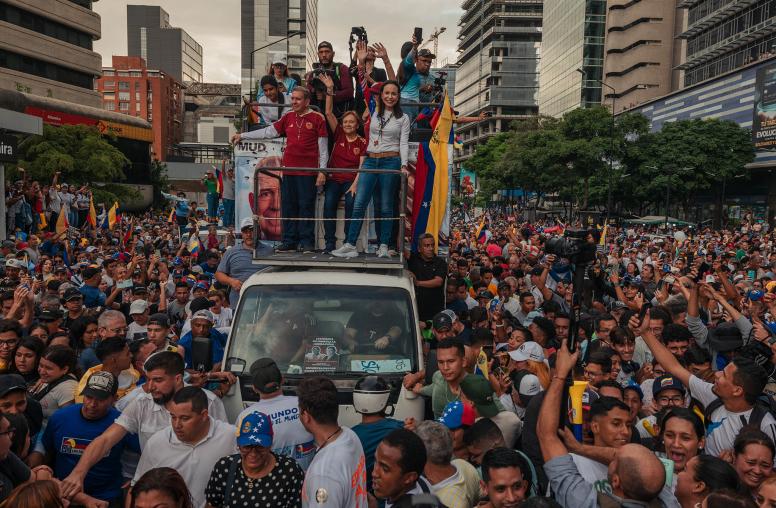The challenge we aim to address is simple: Elections in emerging democracies or countries with ongoing or recent violent conflict are often associated with a unique risk of election violence. At any given time, over a dozen elections are at risk of violence around the world. Election violence is not unique to any continent, regime type, human development level or electoral system, and may erupt before, during or after Election Day.

What is election violence? The U.S. Institute of Peace defines election violence as “any form of intimidation or physical violence directed against electoral stakeholders or the disruption of events or damage to materials intended to affect an electoral process or influence the outcome.”
"Elections Wire" presents news about relevant incidents or initiatives that may escalate or mitigate the risk of violence. We also feature a calendar with “Elections at Risk on the Horizon” to encourage early coordination, budgeting, and planning, at least six to 24 months before Election Day. The list is not comprehensive, but provides a brief illustration of the countries that merit further attention to ensure tension does not escalate into violence. Elections are selected based on three primary criteria:
- Timing: Confirmed and anticipated elections in the upcoming 24 months;
- Election type: Including general, presidential or parliamentary elections; and
- Risk: High anticipated potential for election violence.
Many efforts have been taken to capture or visualize election violence and broader forms of political violence worldwide (the Dataset of Countries at Risk of Electoral Violence, National Elections across Democracy and Autocracy, Ushahidi, Armed Conflict Location & Event Data Project, etc.), but there are still no predictive models publicly available that seek to identify those upcoming elections at risk of violence.
Like other forms of political conflict, election violence presents a complex problem that is difficult to predict and resolve. In the absence of tailored risk indices, we select countries at risk of political instability during the election year, using data from the Economist Intelligence Unit and the Fund for Peace’s Fragile State Index.
Governments, civil society or international organizations often take well-intended steps by engaging youth, training police, or deploying observation teams. However, too often prevention starts just a few months before Election Day, when violence is just around the corner, and the window of opportunity for effective preventive action may already be closed.
The success of election programming requires domestic and international actors to start designing projects long in advance. Work on planning, budget requests, and risk assessments should start as soon as election dates are confirmed. Sustained conflict prevention presents the most promising way to ensure peaceful elections, as it helps address deeper grievances that can be manipulated by spoilers to incite violence.


